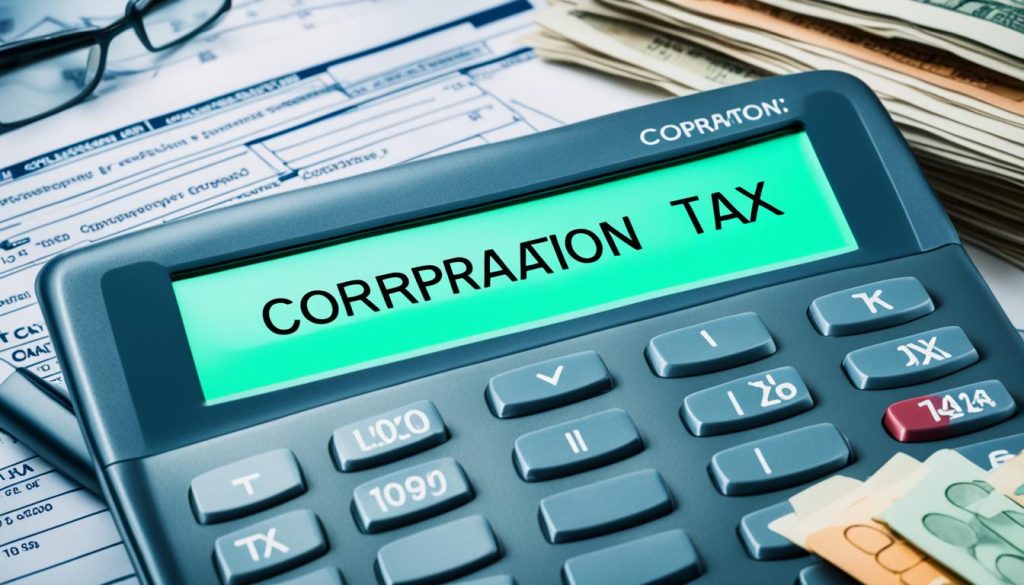For any limited company operating in the UK, understanding the intricacies of Corporation Tax is crucial. Corporation Tax is a tax on the profits of a company, and it plays a significant role in determining the financial health of your business. In this guide, we will delve into the specifics of Corporation Tax, including how it is calculated, key deadlines, and potential reliefs available to you as a limited company.
By gaining a thorough understanding of Corporation Tax, you can ensure compliance with HMRC regulations while also maximizing your company’s financial efficiency. So, how much is Corporation Tax for a limited company? Let’s explore this important topic together.
How Much is Corporation Tax for a Limited Company?
The Corporation Tax rates for limited companies in the UK vary depending on the level of profit. Currently, the main rate stands at 25% for company profits. However, there are specific rates applicable to different profit thresholds:
- Companies with profits of £50,000 or less qualify for the reduced rate of 19%, known as the “small profits rate”.
- For companies with profits between £50,000 and £250,000, Marginal Relief may be available, further reducing the Corporation Tax rate.
- From 1 April 2023, significant changes will be implemented. The main rate will increase from 19% to 25% for profits above £250,000, while the small profits rate will remain at 19% for companies with profits below £50,000.
To summarize, the current Corporation Tax rate for limited companies is 25%, but with upcoming changes in 2023, it is essential for businesses to keep these new rates in mind when calculating their tax liabilities.
Corporation Tax Rates for Limited Companies (2023)
| Profit Level | Current Rate | Rate from April 2023 |
|---|---|---|
| £0 – £50,000 | 19% | 19% |
| £50,001 – £250,000 | 19% | 19% |
| Above £250,000 | 25% | 25% |
By understanding the Corporation Tax rates and any upcoming changes, limited companies can effectively plan their finances and ensure compliance with the UK tax regulations.

Corporation Tax Threshold and Deductions
The threshold for Corporation Tax depends on the level of profit made by a limited company. Companies that made profits of £250,000 or less will qualify for the reduced rate of 19%, while companies with profits above £250,000 will pay the main rate of 25%. For companies with profits between £50,000 and £250,000, Marginal Relief may be available. This relief reduces the Corporation Tax rate.
Additionally, limited companies may be able to claim deductions or tax credits on their Corporation Tax, which are known as allowances and reliefs. These deductions can help reduce the overall tax liability of the company.
Understanding the thresholds and deductions is crucial for limited companies to effectively manage their Corporation Tax obligations. By taking advantage of available allowances and reliefs, companies can optimize their tax position and ensure compliance with HM Revenue and Customs (HMRC) regulations.
Corporation Tax Allowances and Reliefs
Limited companies may be eligible for various allowances and reliefs when calculating their Corporation Tax. These allowances and reliefs can help reduce the amount of tax a company has to pay.
Some of the common allowances and reliefs include:
- Research and development costs
- Profit from patents
- Production of creative media
- Business losses
- Disincorporation relief
These allowances and reliefs are specific to limited companies and can be claimed to lower the Corporation Tax liability. By taking advantage of these allowances and reliefs, companies can optimize their tax position and potentially save on their tax payments.

Claiming research and development costs can provide tax relief for companies engaged in innovative activities. This allows companies to deduct a percentage of their R&D expenses from their taxable profits, resulting in a lower Corporation Tax liability.
Profit generated from patents can also provide tax benefits. Companies can claim relief on their patent income, which reduces their taxable profits and decreases the amount of Corporation Tax payable.
The production of creative media, such as films, TV programs, and video games, can qualify for tax reliefs. These reliefs aim to support the growth of the creative industries by providing incentives for companies to invest in the production of creative content.
Business losses incurred during a specific period can be carried forward and offset against future profits. This allows companies to reduce their taxable profits in subsequent accounting periods, thereby reducing their Corporation Tax liability.
Disincorporation relief is available for companies that decide to cease trading as a limited company and transfer their assets to their shareholders as individuals. This relief ensures that the immediate tax consequences of disincorporation are not excessive.
| Allowance / Relief | Description |
|---|---|
| Research and Development (R&D) Costs | Deduction of R&D expenses from taxable profits |
| Profit from Patents | Relief on income generated from patents |
| Production of Creative Media | Tax reliefs for the production of films, TV programs, and video games |
| Business Losses | Offsetting losses against future profits |
| Disincorporation Relief | Reduced tax consequences when ceasing trading as a limited company |
By understanding and utilizing these allowances and reliefs, limited companies can effectively manage their Corporation Tax obligations and potentially reduce their overall tax liability. It is essential for companies to consult with tax professionals or accountants to ensure they optimize their tax position and adhere to the relevant regulations.
Corporation Tax Compliance and Legislation
Limited companies are required to comply with corporation tax legislation set by HM Revenue and Customs (HMRC). This legislation outlines the rules and regulations for calculating and paying corporation tax. Companies must accurately calculate their taxable profits, apply the appropriate tax rates, and submit a corporation tax return within the specified deadline.
It is essential for companies to stay informed about any changes to the legislation and ensure they comply with their tax obligations. Non-compliance with corporation tax legislation can result in penalties and fines imposed by HMRC.

Staying compliant with corporation tax legislation involves several key responsibilities:
- Calculate taxable profits accurately
- Apply the correct tax rates
- Submit the corporation tax return on time
By fulfilling these obligations, companies can avoid unnecessary penalties and fines, maintain good legal standing, and ensure their tax affairs are in order.
When and How to Pay Corporation Tax?
As a limited company in the UK, it is important to understand when and how to pay your Corporation Tax. The payment deadline for Corporation Tax depends on the taxable profits of your company.
If your taxable profits are up to £1.5 million, the payment is due nine months and one day after the end of your company’s accounting period. This gives you sufficient time to calculate and prepare for the payment.

For taxable profits above £1.5 million, the payment is made through instalments. This means you will need to make regular payments throughout the year to meet your Corporation Tax obligations.
You can calculate your Corporation Tax using the appropriate rates and relief options available. It is important to ensure that your calculations are accurate to avoid any discrepancies or penalties.
When it comes to making the payment, you have several options. You can pay online through the official HM Revenue and Customs (HMRC) website, or use telephone banking, online bank accounts, or direct debit. Choosing the most convenient method for your company will help streamline the payment process.
It is crucial to plan ahead and pay your Corporation Tax on time to avoid penalties and interest charges. By staying on top of your tax obligations, you can maintain compliance and effectively manage your company’s finances.
Conclusion
When it comes to Corporation Tax for limited companies in the UK, understanding the rates and thresholds is crucial. The current rate stands at 25%, although companies with profits of £50,000 or less can benefit from a reduced rate of 19%. For profits between £50,000 and £250,000, there is a possibility of Marginal Relief, which can lower the overall tax liability.
Moreover, limited companies can take advantage of various allowances and reliefs to further reduce their Corporation Tax. By carefully navigating through these options, companies can optimize their tax position and minimize their tax obligations.
Compliance with Corporation Tax legislation is essential to avoid penalties and fines. Companies should accurately calculate their taxable profits, apply the correct rates, and submit their Corporation Tax return within the given deadline. Online calculators and guidance from HMRC can be valuable resources in this process, ensuring the correct amount of tax is calculated and paid.





